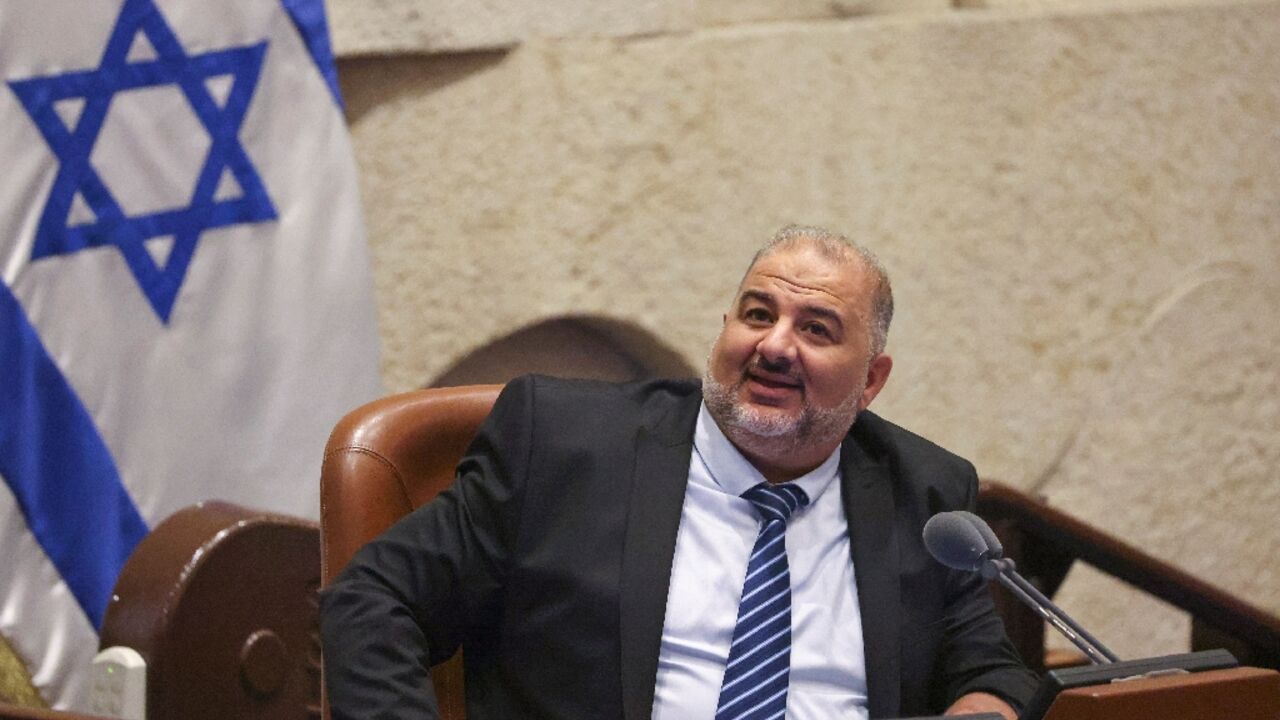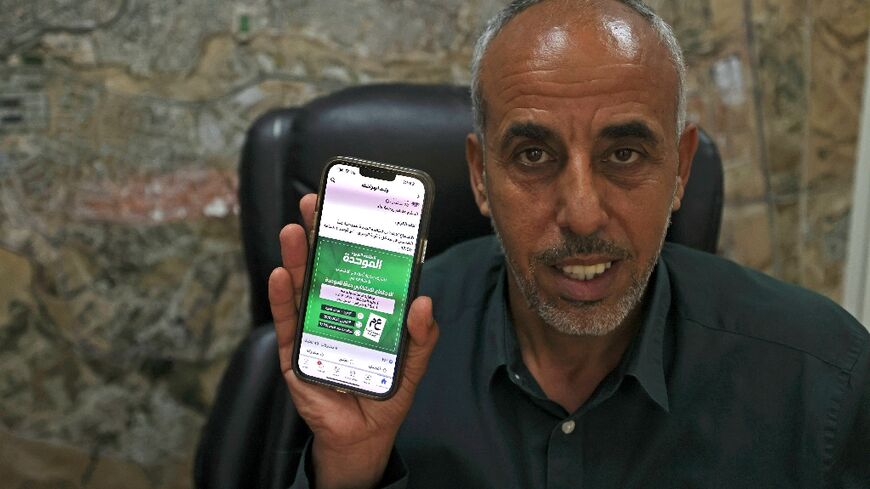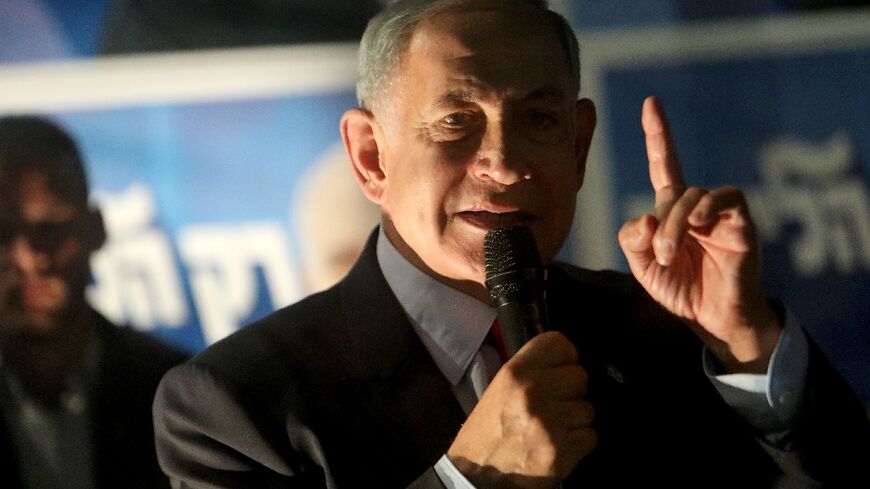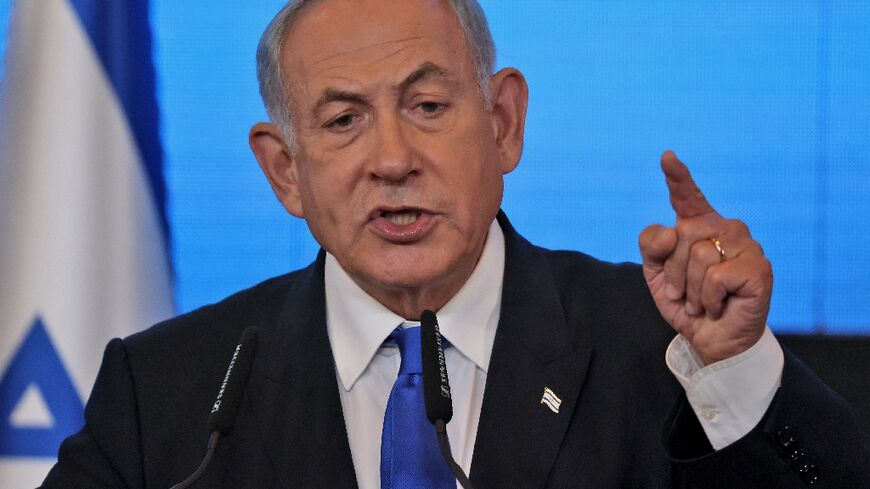Mansour Abbas: Arab-Israeli political trailblazer

A conservative Muslim, Mansour Abbas made history last year when he led his Arab party into Israel's coalition government, claiming "big" achievements but also becoming a divisive figure.
Abbas, a former dentist from northern Israel, had emerged as an unlikely kingmaker following Israel's March 2021 elections, throwing his support behind a motley coalition which collapsed after little more than a year.
But the leader of Raam, the United Arab List, described the short-lived exercise as a "pioneering experience" that he hopes to recreate after voters head to the polls on Tuesday, in Israel's fifth election in less than four years.
"It was a risk that turned into an opportunity -- we've managed to achieve really big steps" for Israel's Arab minority, 48-year-old Abbas told AFP, his hands clasped.
His party had secured billions of dollars in pledged funding when it joined the government of right-wing leader and former settler Naftali Bennett -- a move viewed by some Arab-Israelis as betrayal.
- 'Crisis of confidence' -
In entering the political mainstream, Abbas has focused attention on Arab-Israelis, who make up around 20 percent of the population, distancing himself from the plight of the broader Palestinian population, including in the occupied West Bank and blockaded Gaza Strip.
This has made him more palatable to Israeli leaders, who have demonstrated no political will to revive peace talks with the Palestinians, but has alienated Abbas from some of his constituents.
Raam ran on a joint platform with three other Arab-majority parties in 2020, in a show of unity that propelled the alliance to an impressive 15 spots in the 120-seat parliament.
But Abbas decided to withdraw from the bloc last year, paving the way for a damaging schism among the Arab community's political leaders.
A further rupture resulted in three Arab-led parties running in the November 1 polls, all teetering on the electoral threshold.
Abbas said he believes Raam will retain its four seats, the minimum required to enter parliament, even as he acknowledged that Arab parties face a "crisis of confidence with the Arab public".
Adding to infighting between the formerly allied parties, many Arab-Israelis now argue they saw no tangible benefits from the coalition before it collapsed in June.
Israel's Jewish majority has also been split over the pious Abbas, with some opponents arguing his commitment to his Muslim faith is incompatible with governing the country.
After becoming enthralled by Islam as a teenager, Abbas said his faith taught him that "we can live with others from a religious standpoint".
- 'Seeking to influence' -
One of 11 children born to a farming family in the town of Maghar, where he still lives, Abbas practised as a dentist after studying at the Hebrew University of Jerusalem.
For some Arab-Israelis, he has achieved a remarkable rise to power.
He told AFP he had no intention of entering politics but felt under "social pressure" to act on rising crime in the Arab community.
Abbas was first elected to parliament in 2019 and took on roles chairing committees addressing the issue.
After the March 2021 elections, Abbas had been courted by both Benjamin Netanyahu and his opponents, who ultimately clinched a coalition and ousted the longtime leader from the premiership.
His central role in government talks propelled Abbas to primetime appearances on Israeli networks, marking a breakthrough for Arab-Israelis who are rarely given airtime on national television.
While support for Abbas is far from universal, his celebrity air was evident at a roadside restaurant close to his hometown of Maghar, where diners shook his hand eagerly and asked for a photo as he greeted them in Hebrew.
Responding to those dissatisfied with his initial run in power, Abbas argued he was heading in "the right direction" to address issues such as violent crime.
"It's not enough that I'm in parliament," he said. "Rather, I'm seeking to influence and enter the coalition."






